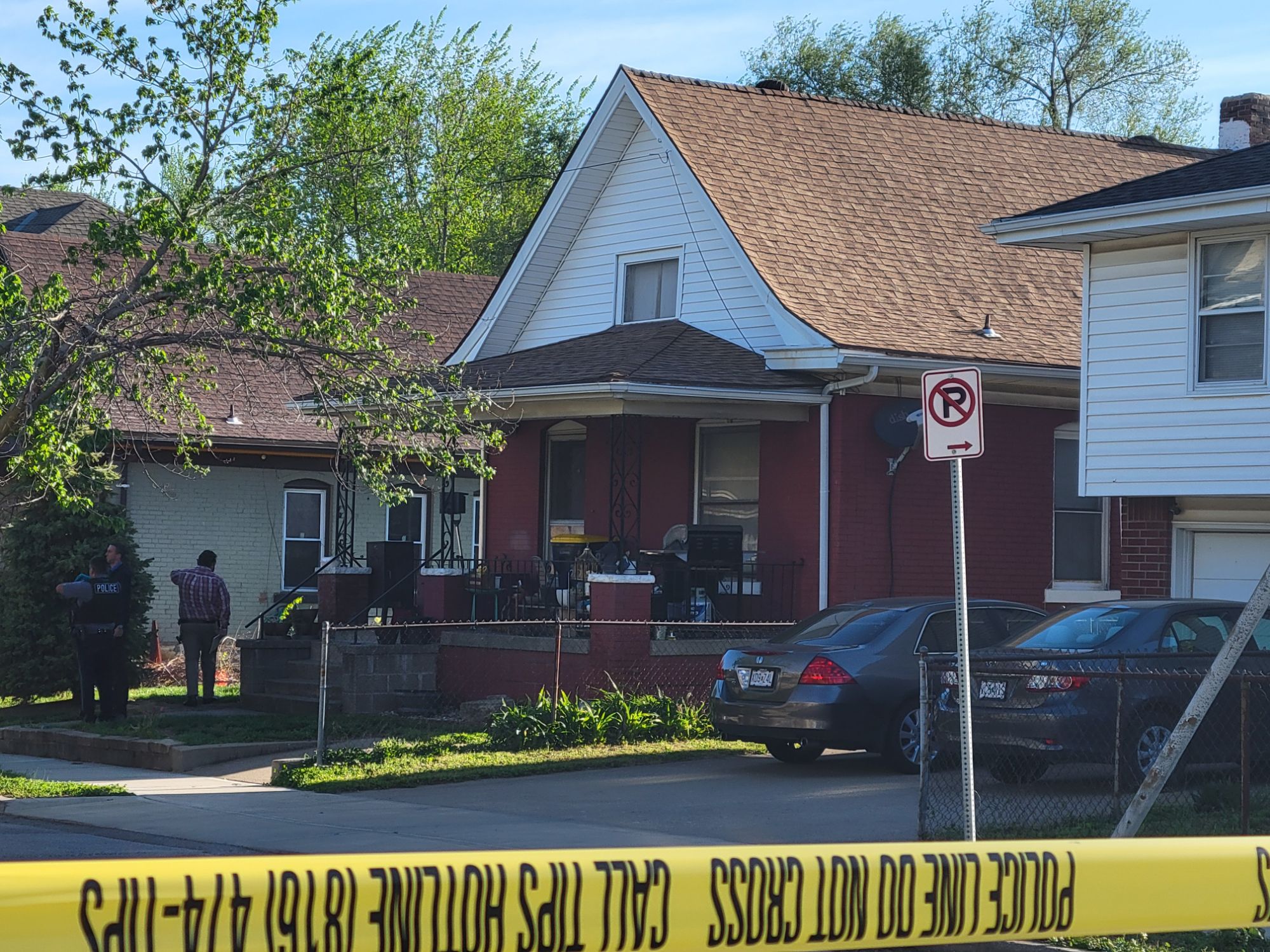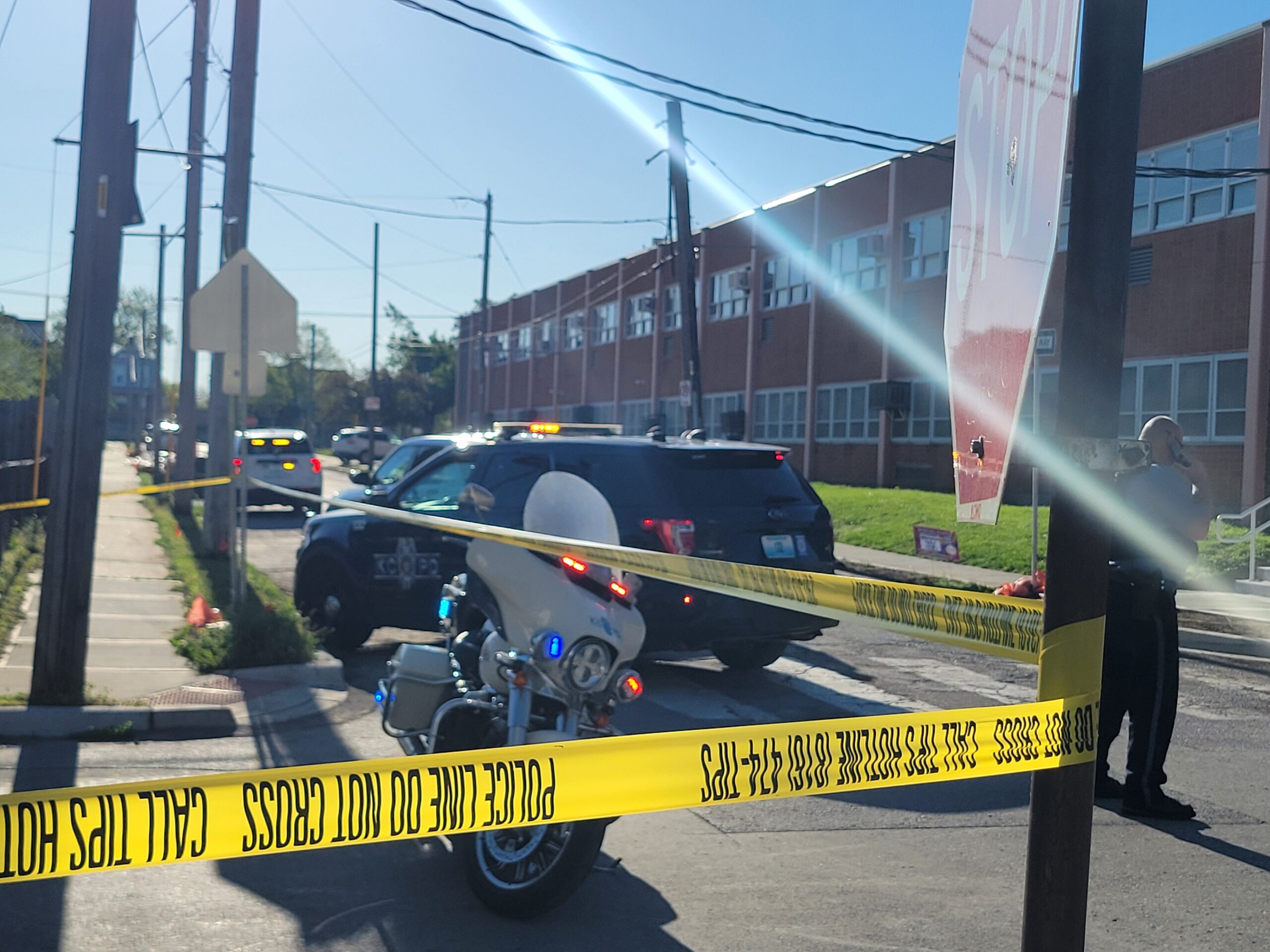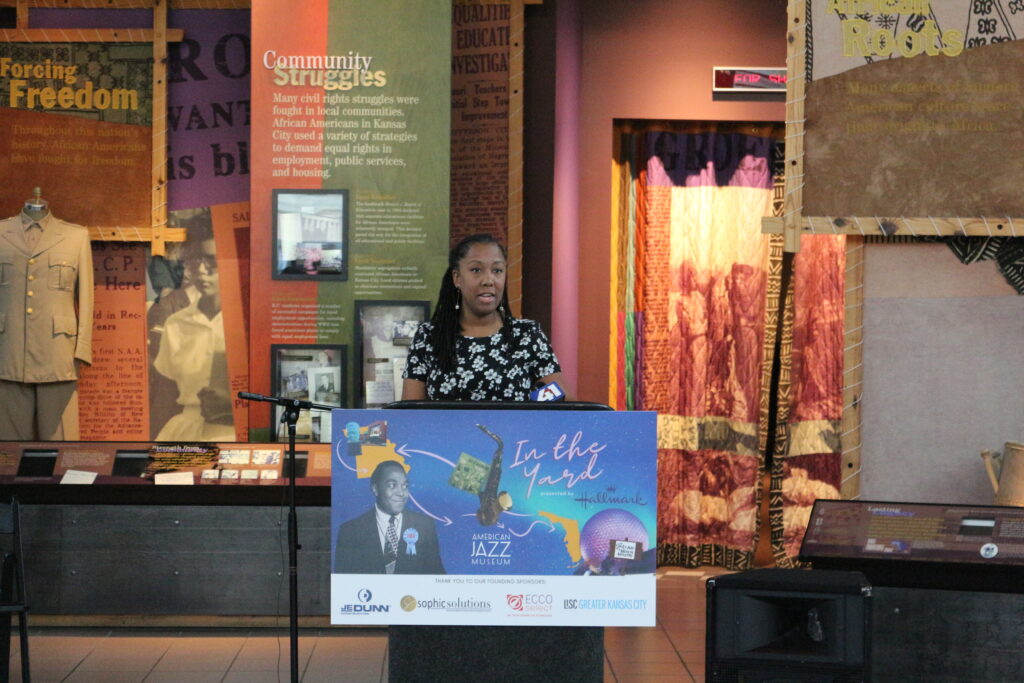
The American Jazz Museum (AJM) in the historic 18th and Vine District has announced the start of a campaign to raise $101,000 to increase educational jazz youth programming, digitize collections and programs, and create a KC Jazz Incubator.
The “In the Yard” campaign will run through August 29, culminating in a celebration of jazz great Charlie “Bird” Parker’s 101st birthday.
On the anniversary of Parker’s death, Kansas City Mayor Quinton Lucas joined jazz musician Bobby Watson and Bryan Parker, grandson of Charlie Parker, to announce the new campaign.
The incubator will serve as a hub for local musicians to build foundations of success through mentorship, collaboration, improvisation, and innovation. It will support local musicians and the 18th and Vine district.
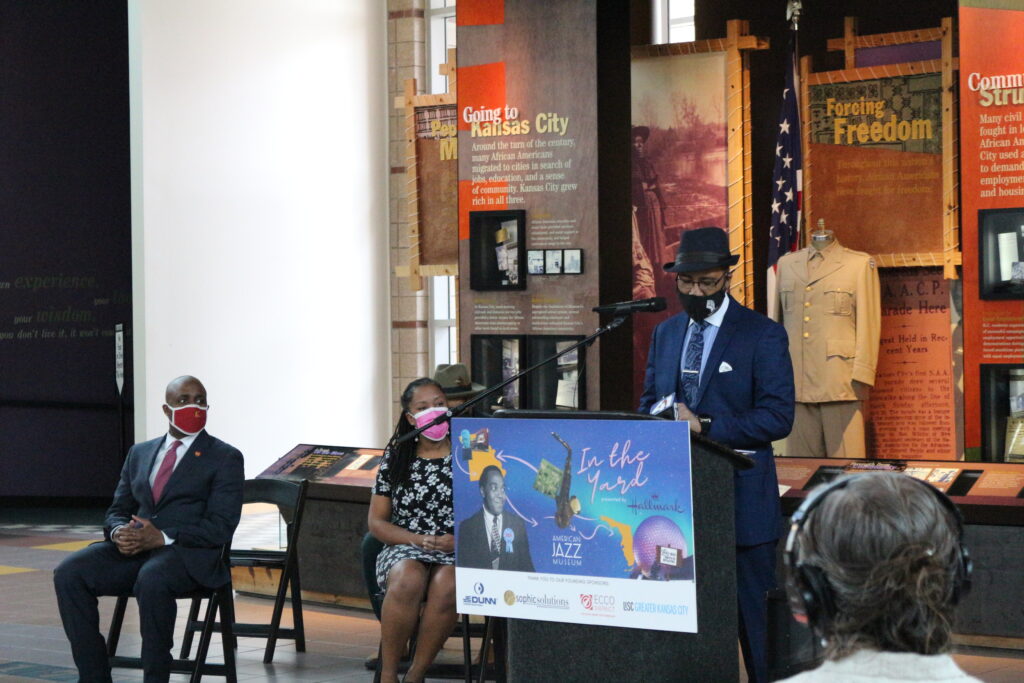
“When we talked about Kansas City’s history influencing the jazz scene, it all started here,” Councilman Brandon Ellington said. “When we talk about Charlie Parker, he became famous for the work that he put in here. When we talk about our jazz museum, this is the only museum in the world that is dedicated to the preservation, the exhibition and advancement of jazz.”
Lucas called the museum a “crown jewel institution” for the nation, the city, and his neighborhood. He noted that the institution is poised to be at the center of the future of Kansas City.
“I am so proud, over the last year, of what the American Jazz Museum has been able to do – and willing to do – converting educational opportunities to online, making sure they’re still building and planning for our future, and making sure that this is still a source of celebration and pride for all of us in our community,” Lucas said. “We faced a lot in 2020 – and 2021- but the jazz museum has been a cure, in a way, for all, whether it’s performances at the Gem Theater, educational opportunities for our young people.”
Lucas encouraged everyone to “dig down a little bit” for the campaign that supports an institution that shares the message of jazz, which he called the message of Kansas City.
“I look forward to everyone in Kansas City, as we responsibly reopen, making sure that we support institutions like this one,” Lucas said. “Institutions that are playing it right, institutions that are at the core of our community.”
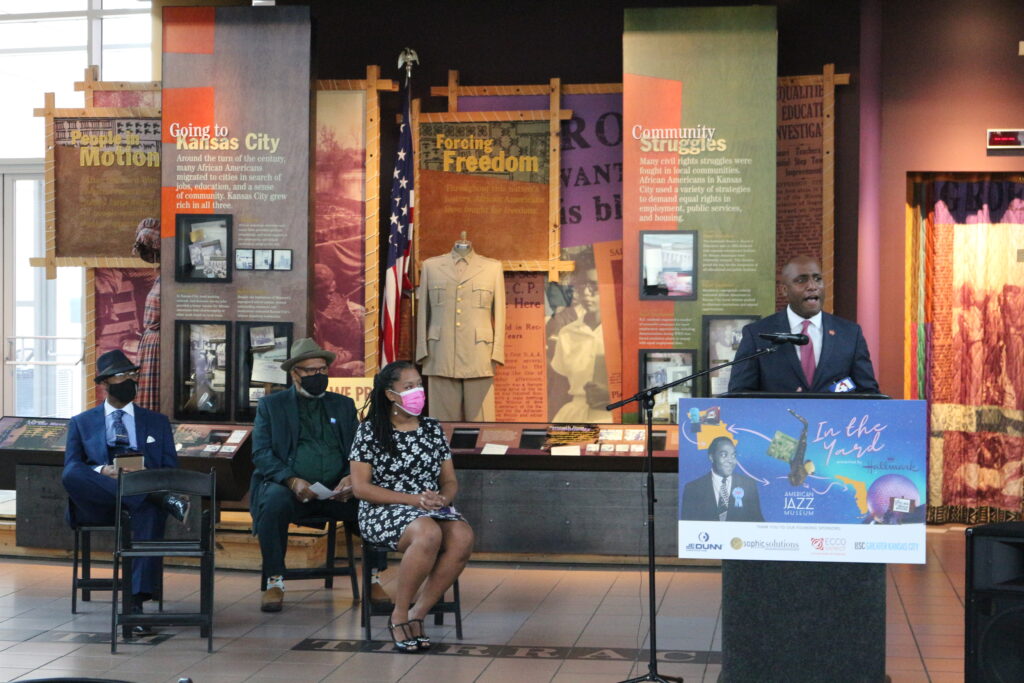
The mayor recalled meeting Rashida Phillips, AJM Executive Director, early last year before the pandemic hit on a panel talking about the importance of music in Kansas City. While Lucas noted he can’t carry a tune, it has an impact on him.
Standing between the AJM and Negro Leagues Baseball Museum, Phillips said, “That’s Kansas City’s identity: jazz, baseball and barbecue,” adding that the museum draws in both international and local visitors.
“It is our great pleasure to showcase how much jazz endures, how important it is,” Phillips said. “I’d like to think that today, Charlie Parker is looking down and smiling. This is actually Charlie Parker’s death anniversary today. But it’s a re-birthday for us, right, and we understand that jazz endures.”
Phillips said the campaign started with a wild idea of taking Parker’s saxophone to Disney World ahead of this year’s Super Bowl, where it remains on display.
“While Bird is away, we’ve got to get our house in order here, right?” Rashida said. “We’ve got to best our nest… When that saxophone returns to us, when we celebrate Parker at the end of August for his birthday with a parade, film festival, some music events, we will have celebrated raising money, not only in his name, but in the name of our youth, in the name of our elders, in the name of our musicians and all of our visitors that come through this institution.”
With venues shuttered and performances cancelled by the pandemic, musicians and artists have felt the strain in the past year. The funding will go to celebrate the museum’s mission of performance, education, exhibition, research, and all the opportunities provided to visitors and people in the community to visit the museum and celebrate what jazz means to them.
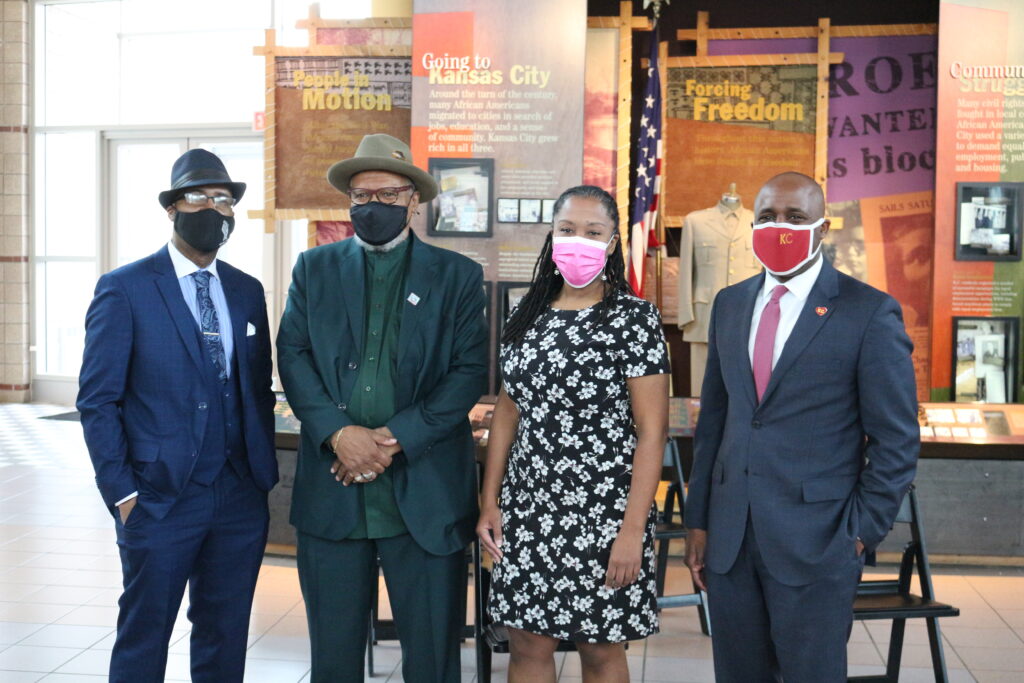
“We know across the nation many jazz clubs are no more,” Phillips said. “Some of them have shuttered their doors forever. We are blessed to have the Blue Room, we are blessed to have the Gem Theater here. We’re blessed to have these spaces where we can incubate the talent, we can share the talent, and we can expand the talent.”
The museum has education programs, jazz storytelling, and a jazz academy that supports early learners and middle and high school students.
Phillips said If they’re not musicians themselves, they utilize those sensibilities to move forward in life. During the pandemic as schools have been closed and students have been virtually learning online, the museum has had distance opportunities for the students on Saturdays to communicate and learn with each other.
“We plan to continue to expand that, as well, and we also know that musicians reach out to us for workshops, for services, even for mental health services, even for food, alll kinds of things that we can provide them,” Phillips said. “Now is the time.”
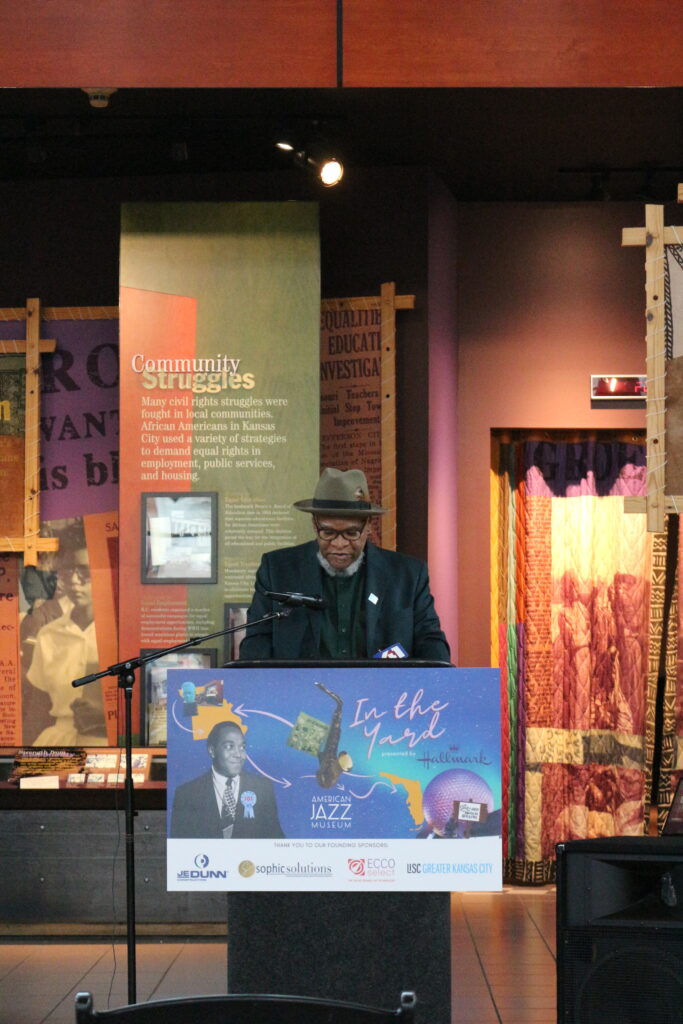
Bobby Watson, jazz musician and educator, remembered in 1987 when John Conyers from Detroit, the longest serving Black congressman, introduced a resolution proclaiming jazz as a national treasure.
“I was in New York at the time when this went through, and for all of us in the jazz community there, this was a really important moment for us and for all the ones that came before us, and had dedicated and sacrificed their lives to this music,” Watson said.
He recalled Congressman Cleaver saying while he was mayor of Kansas City that jazz was born in New Orleans, but grew up in Kansas City. In 2016, the US House of Representatives passed a resolution officially designated New Orleans as the birthplace of jazz and Kansas City at the house of jazz.
“Cleaver was and always has been a champion for this truly American art form that I love so deeply and I’ve dedicated my whole life to preserving and delivering around the world,” Watson said.
A jazz messenger himself, Watson compared his life’s work to that of a prophet spreading the word to young people around the world.
“We have the responsibility of mentoring and nurturing young jazz musicians,” Watson said. “I’ve already been able to indoctrinate some young jazz messengers. A lot of them are still in the oven being cooked, but you’ll be hearing about a lot of them coming up, not just me, but there’s plenty of jazz messengers in the city.”
In August, Parker’s saxophone will return to Kansas City for his birthday celebration. To donate to the campaign, those interested can text Bird Lives to 44321.


